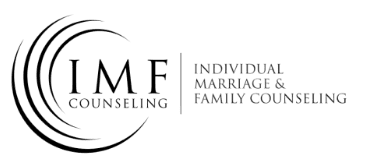Finding Help
Stig·ma/ˈstiɡmə/
noun
a mark of disgrace associated with a particular circumstance, quality, or person.
It is no secret…the word “addiction” itself carries a significant stigma that has been present for decades. Treatment options for those struggling to control substance use or behavioral addiction are abundant; yet, many do not receive the help they need. According to the 2014 National Survey on Drug Use and Health, only 2.5 million people received specialized treatment for substance use; 2.5 million out of 21.5 million Americans age 12 and older who were diagnosed with substance use disorder.
Perhaps you realize you are struggling more than you thought with substance use and/or an unwanted behavioral pattern. On the other hand, maybe you have a loved one who is struggling; you’re not sure what to say, you want to suggest help but just do not know where to begin. Options for help are actually best visualized on a continuum – being able to get on or off the train at any station at any given point brings a lot of flexibility and freedom when choosing what is the best next course of action.
If you’re not sure where to find information on the programs available to you in your area, you can reach out to your local hospital, a community organization such as your county’s Department of Health, or call a local therapist who can help point you in the right direction.
You may have heard it said before, “addiction is a family disease.” That statement does not mean every member of a family is using drugs or gambling. It does mean that the behaviors of one family member do in fact affect the others; each affected family member takes on a role and a set of stated or unstated family rules begin to develop within the family system. Many times, no one in the family knows what to say or how to act around the person struggling in an addictive cycle. Saying something may cause hurt feelings or angry outbursts or stifling silence. The behavior continues, the isolation forms a bigger web, and soon, the family unit experiences what many describe as chaos.
Family members and loved ones can often spot problematic behavior before the individual using even realizes what is happening to them self. This awareness can bring much frustration to everyone involved; it can be very difficult for the struggling individual to ask for help if he or she does not perceive there is a problem. Furthermore, family and friends feel stuck, not sure where to turn to get help for their loved one and help for them.
“Wait. I don’t need help. I am not the one drinking all night and shopping all day.”
Yes, I understand that. It does seem a bit pretentious to assume a healthy individual needs help for a problem that is not theirs. Reality says, though, the family system has been hijacked by a substance or behavior-induced cycle. Support for each member can be so helpful and bring much hope.
To find out about support in the mid-Missouri area, get in touch with us! We’re happy to answer your questions and point you in the right direction.
How do we reduce the stigma surrounding addiction and even the broader arena of mental illness? We talk about it. We read blog posts like this one, talk to those who are struggling, strive to have an open mindset that addiction can affect anyone, and we encourage each other to ask for help.
